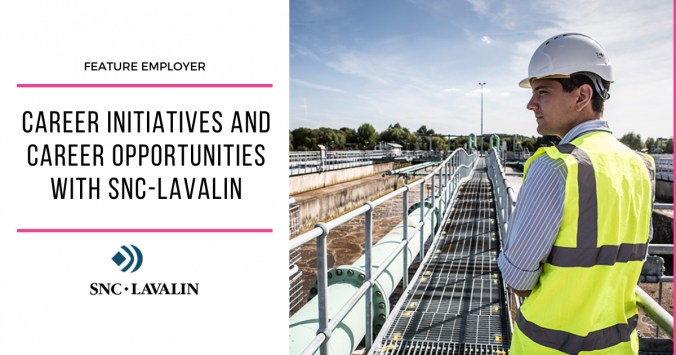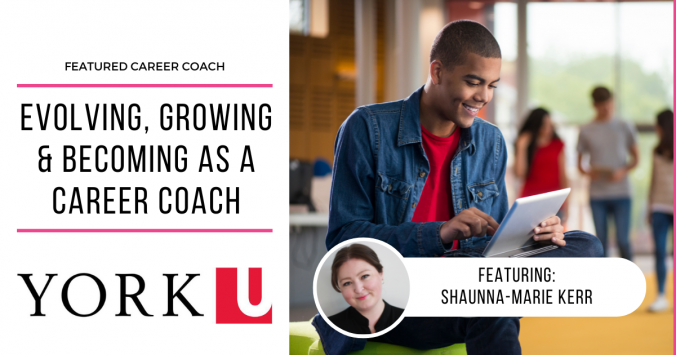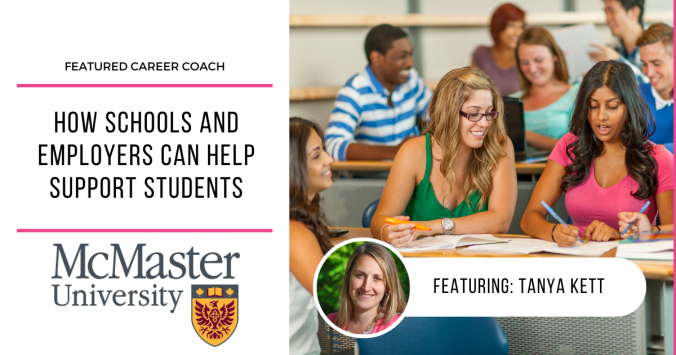SNC-Lavalin is a global engineering and construction leader based in Montreal, Quebec. The company also builds public and private infrastructure around the world. Additionally, SNC-Lavalin is committed to connecting people, technology and data throughout their project lifecycle to drive better outcomes across safety, sustainability and efficiency.
We spoke with Mai-Gee Hum, Senior National Manager – University Relations & Early Careers, to learn more about how SNC-Lavalin supports students and new grads in their career journey with the company.
Initiatives for Students and New Graduates Looking to Work Within the Industry
SNC-Lavalin has a New Graduate Development Program for all those newly hired. It also is present at university and college career fairs, employer information sessions, and posts its internships and permanent positions on school job boards.
The team at SNC-Lavalin is looking for New Graduates from Canadian schools (universities or colleges) who are autonomous, collaborative, motivated, and have initiative. Previous work experience is usually optional.
The program welcomes new graduates from every discipline, not just engineering! The best way for students and recent graduates to get involved with career opportunities at SNC-Lavalin is to attend its information session, ask thoughtful questions at the school’s career fair, and to network with the team. Mai-Gee also invites students and new grads to go to the SNC-Lavalin career website to create a user account, set up their preferences and create job alerts.
Diversity, Equity and Inclusion at SNC-Lavalin
At SNC-Lavalin, diversity, equity and inclusion mean making a positive impact on society through more inclusive and accessible design – being sensitive to human differences concerning ability, language, culture, gender, age and other forms of diversity. And it means using our global voice to champion progress through thought leadership.
Internally, SNC-Lavalin is removing barriers in every region and at every level – spearheading change through trusted and inclusive leaders, increasing female representation across its whole organization, and broadening its talent pipeline to include all under-represented groups. This is supported by ground-breaking learning opportunities that unleash potential – giving its clients world-leading expertise. It is essential for SNC-Lavalin because the team believes diversity makes them stronger. It builds a healthy and honest work environment and nourishes curiosity and innovation.
Employees’ diversity of characteristics, knowledge and approaches enhances the team’s ability to provide value-added performance and better serve our clients and business partners. With high diversity and inclusion, SNC-Lavalin can achieve a globally representative workforce and a supportive work environment filled with highly diverse and highly engaged talent.
5 Major Hiring Trends of the Future
Mai-Gee shares with us the five top trends that will take precedence in the future of the workplace:
- The job market remains tight and competitive
- Flexibility in the workplace is here to stay
- Work culture and environment will influence applicant acceptance decision making processes
- Employers will need to invest in regular up-skilling to ensure employees can tackle increasingly complex work
- Employer diversity and inclusion initiatives remain important to job seekers.
Measuring Success in the Industry
There are many ways to measure success in the industry. Some SNC-Lavalin metrics include retention rate, offer acceptance rate, and the rate of employees who, following employment elsewhere, choose to return to SNC-Lavalin for its values, work culture, and sense of belonging.
Final Thoughts
SNC-Lavalin is a phenomenal place for students or new grads to start their career. The company is focused on connecting new hires with professionally rewarding opportunities, delivery of complex projects with sustainable lifespans, and tackling the industry’s biggest challenges head-on.



